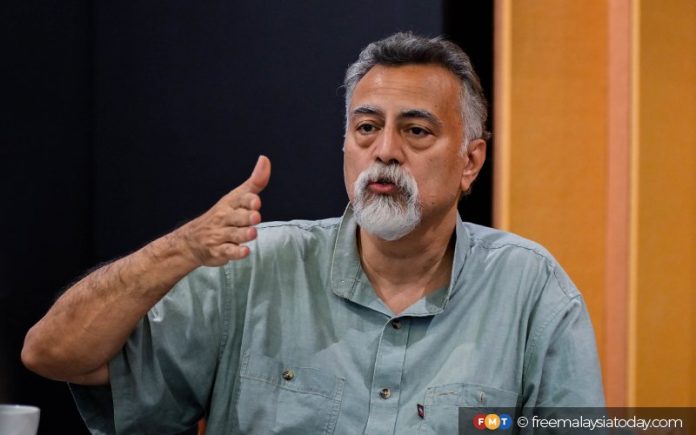The religious rhetoric in Malaysia remains more regressive than progressive, according to an academic who warned more than two years ago that the country was slipping towards extremist tendencies.
Syed Farid Alatas, a Malaysian who serves as professor of sociology at the National University of Singapore, said there had been no improvement in the situation since September 2019, when he alleged that Malaysia was on a slippery slope to extremism following several crackdowns on Shia Muslims by Johor and Selangor religious authorities.
He said then that there was an urgent need to educate the young because changes could take one or two generations before becoming tangible.
In the latest interview with FMT, Farid said the same religious institutions and personalities remained dominant.
“We haven’t made any significant change in terms of religious education,” he said. “There’s no indication that change is on the horizon.”
He said the topic of religion had not always been contentious, and blamed politicians for making it so, saying they tended to manipulate interest in religion to get political support.
“When religion becomes strong, politicians find it useful and expedient to use it as a tool. That’s where the problem lies,” he said.
“But I want to stress that it’s not religion that’s the problem. Any ideology or value system, if it’s meaningful to the people, will be manipulated and abused by politicians.”
Referring to the breakdown in ties between Umno and PAS, Farid said it was both a good and a bad thing.
It was good because it had put brakes on the Islamisation agenda, he said. “When I say the Islamisation agenda, I mean the more extremist agenda, because in principle, we’re not against Islam but we’re against the regressive understandings of Islam that they have.”
He said the development was bad because it showed a lack of maturity in politics among dominant parties. He alleged that these parties were not capable of coming to an understanding and developing policies that were good for the nation.
“We would expect truly Islamic parties to be concerned about the welfare of the entire nation,” he said.
“They should also be concerned with rooting out corruption and with the need for harmony between different religious communities and races.
“We see that neither side seems dedicated to dealing with those problems. So their inability to come together and deal with these problems in a progressive manner is very unfortunate, seeing that they’re dominant parties.”
He also said Malaysians needed to stop thinking along racial lines and start voting by class lines in order for Malaysia to progress.
He said most Malaysians – Malays and non-Malays – were in economic suffering.
“They should feel a sense of solidarity and push for a more just and better government. If they think along class lines and along the lines of issues rather than racial or religious criteria, then we have a chance of having a better government.
“I think Malaysians did do that to a certain extent in the last general election, which indicates improvement and maturation in the political culture of Malaysians. But that needs to continue.”
By Nicholas Chung / freemalaysiatoday
The views and opinions expressed in this article are solely those of the author and do not necessarily reflect the position of AsiaWE Review.




